Sherrill
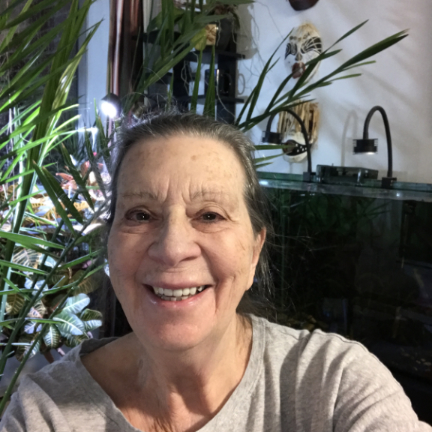
... is a novelist, screenwriter, short story writer, poet, book designer,
former editor, not-so-little ol' lady but is otherwise normal.
She’s a former member of CAA–NCR (Canadian Authors Association, National
Capital Region branch) and is the former editor/designer of their e-mag, Byline.
She kills people off in her dark short stories under a pseudonym (Christina
Crowe) and under her real name in novels and screenplays. "It's beyond cathartic,"
she says. "No jail time at all. And no guilty conscience because it's actually Karma that gets them."
She has also written a series of historical novels about the Acadian people written from
the point of view of Keskoua, a Mi'gmaw woman, and set in Port Royal, Acadia (Annapolis
Royal NS): Death in l’Acadie; Refuge in l'Acadie; Trapped n l'Acadie; and Hanged for
l'Acadie. (Sherrill's paternal grandmother was Acadian.)
Writings are listed below and as As Christina Crowe and as Screenplays.
Her Books
e-Books & Audiobooks
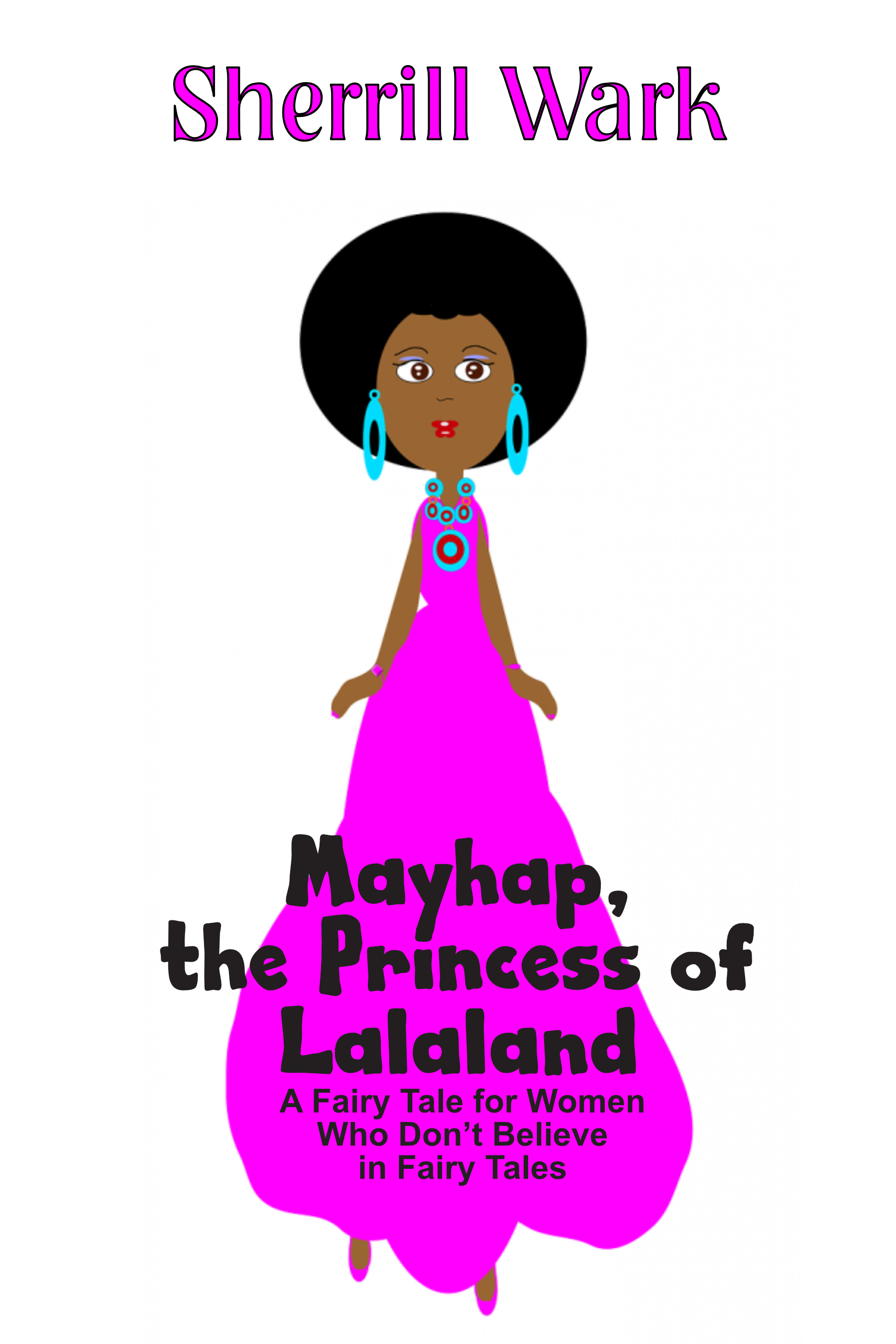
If you happen to totally dislike Romance novels and the same old happily ever after nonsense, this little story just might be for you.
AUTHOR'S NOTE: This story was written somewhere back in the early 2000s when I was a member of a pre-Facebook, social media thing called The Stephen King Discussion Board. Every year, on Valentine's Day or Halloween, depending, we and who we called The Lalas would bombard each other's site with either sweet or scary "graphics" (called memes, today) and comments and even stories—with love and humor, of course. This is the why of my story. I changed the names in the original from Princess Maya, Prince Muana, and His Royal Deejness, to Princess Mayhap, Prince Moan-Ah and His Royal Dorkness. Many of us are friends on Facebook today as The Milers, both Lalas and King fans.


e-Book
(Audiobook to Come)
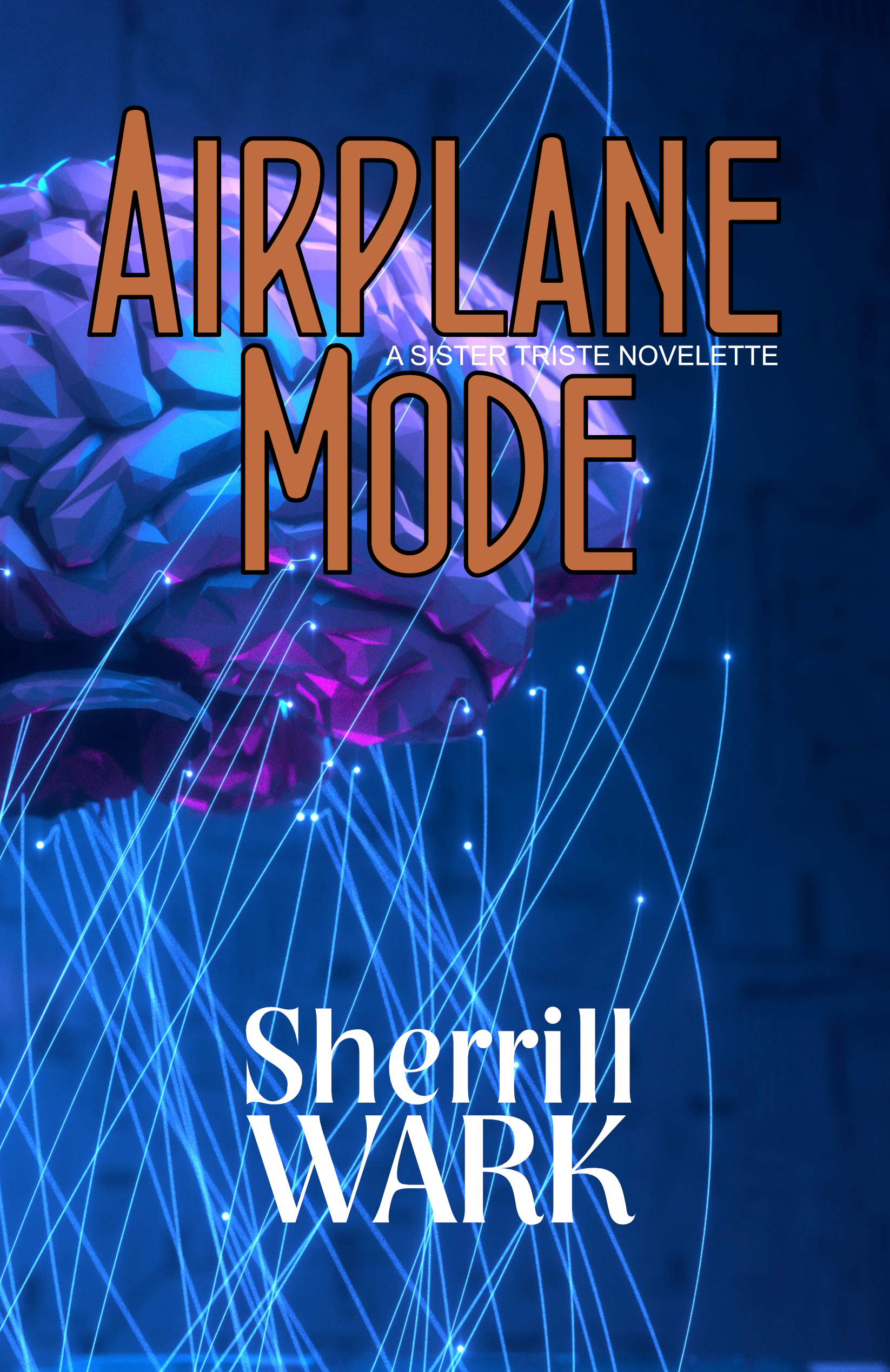
Fiction, Non-Fiction, Poetry
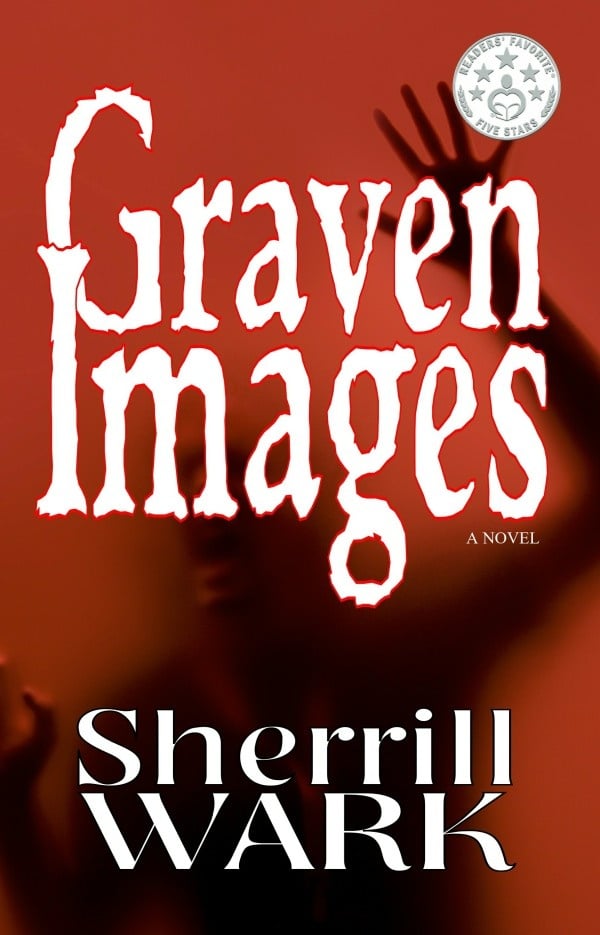
Death without cause is strange enough on its own, but three deaths separated over 39 years and with no decomposition in any of the bodies sends Shaw Falls into a turmoil. A skeptical chief of police seeks the aid of a psychic while an uptight minister and an eccentric old lady neighbor team up to send a diabolical creature back to the hell it slithered in from.
Available from the Amazon dots in print, digital and audio.
Readers' Favorite Reviews
5-Stars x 5 Reviews
Reviewed By Anne-Marie Reynolds for Readers’ Favorite
"Graven Images by Sherrill Wark is one of the best horror stories I have read in a while, a neat combination of horror and the paranormal. Ms. Wark has a way with words, using excellent descriptive language to bring the story to life, conjuring up clear images of key points in the story. The plot was exciting, something different, and it certainly kept me hooked all the way through. There were no dead spots, no lagging, just action all the way, plenty going on to keep me reading, at times on the edge of my seat. The characters were very well-developed, to the stage that I felt I knew them personally and could identify with them. Very exciting story, brilliantly written, and it would make a great basis for a film. Looking forward to reading more from Ms. Wark in the future."
***
Reviewed By Kayti Nika Raet for Readers’ Favorite
"I really enjoyed Graven Images by Sherrill Wark. It was fast paced with an interesting premise that had a bit of a Stephen King feel to it. It is primarily horror, but has a lot of small town mystery thrown in as well. The core cast of characters was unique enough to be memorable and sympathetic as the body count rose. I loved how Wark slowly peeled back the layers of the town, revealing the devastating consequences of prejudice, but also the power of love and faith. Graven
Images was a fast-paced novel that easily kept my attention, from the first page to the last. With just enough creep factor to have anyone looking over their shoulder at night, Graven Images by Sherrill Wark is a great read for any fan of classic style horror."
***
Reviewed By Susan Sewell for Readers’ Favorite
"Graven Images by Sherrill Wark is a cleverly written horror story involving the occult. It is a book that haunts dreams and causes nightmares. This gripping tale serves as a caution to the curious. Not everything is as good as it seems, maybe something evil is lurking in its unseen depths. No one would know that evil is trapped within its walls by looking at the forgotten storybook house from the outside. This book is fantastic! I really enjoyed reading it. This is a fascinating
and terrifying tale of how misbegotten spells can go very wrong. I was completely enthralled with this book from start to finish and recommend it to those who are fans of horror stories incorporating the darker side of magick."
***
Reviewed By Jack Magnus for Readers’ Favorite
"Sherrill Wark's horror novel, Graven Images, blends a paranormal police procedural with one of the most shudder-inducing elder gods stories I've run across. Anyone who has ever thrilled to H.P. Lovecraft's tales of the unearthly elder gods, and the legacy of Cthulhu mythos stories spawned by his creations, will instantly feel that rush of excitement as they begin reading this book. There’s even the epic forbidden tome, the Necronomicon, which resides in the library of parapsychologist Rachel Graye who, together with John, her protege, Miranda Jamieson, the niece of Bessie Graham, and fundamentalist minister, Andrew Coleman, are assisting the police in discovering what is killing people in Shaw Falls and how they can avert an impending catastrophe of earth-shattering significance.
"Wark's team of characters is superbly put together. Watching them work as a team and complement each other's strengths and weaknesses is a joy. While I'm sometimes wary of starting a new horror book and discovering the same old zombies hiding within its pages, I was awed by the original, exciting and very spooky story lurking behind the title Graven Images. Fans of psychological thrillers, dark fantasy, police procedurals and the literary tradition of Lovecraft's Cthulhu mythos will no doubt find something in this work that makes them smile and keep on reading. I stayed up all night, unwilling to put the book down until I reached the conclusion—and it was well worth the lost hours of sleep. I'd love to see the characters I've come to know and admire in future books—they're just too well-developed not to merit at least another outing, another weird and eldritch mystery to unravel. Graven Images is a classy
and original horror novel that delivers high intensity shudders, unearthly horrors and non-stop action. It's most highly recommended."
***
Reviewed By Melinda Hills for Readers’ Favorite
"Graven Images is a tight, well-written horror story that
keeps you turning the pages to see what can possibly happen next. Sherrill Wark has developed strong characters that are subject to a variety of psychological pressures and a back story that demonstrates how evil can subtly take hold. The most amazing aspect of the story, though, is how all the
action is woven through the quaint cottage and the
masterful woodwork inside—the graven images of lost
souls. This is certainly a book well worth reading for a
deep-rooted scare that makes you question the boundaries between good and evil."

To her Guardian Angel’s absolute embarrassment, her “Charge,” teenage Vivie, dies while texting and driving. Susan, a film-noir fan and wannabe writer, who passed over in the early 1960s as a teenager herself, must get Vivie away from the accident site before she dissipates. But since Vivie recognized Susan’s existence only once when Vivie was 13, and only then thinking it was her recently deceased pet rabbit, Petunia, this will take some doing.
As Susan and Vivie work their way through the many challenges facing them, the annoying George keeps popping up unannounced and very much unwelcome.
An absolutely hilarious journey through the Afterlife.
Available at the Amazon dots in print and digital.
 Vivie Goes to Hell. in a Hatchback
Vivie Goes to Hell. in a Hatchback
Readers' Favorite Review
5 Stars. Reviewed by Rabia Tanveer for Readers’ Favorite
"In Vivie Goes to Hell in a Hatchback, Vivie was texting and driving in her mother’s car when she hit a cement pillar and died. Now that she is dead, her Guardian Angel Susan now has to make sure that Vivie travels safely beyond the Veil and gets there in time. The only issue is that Vivie is not being very cooperative as always and the danger is proving to be a little too much. They have to work as a team to get through some very weird obstacles and communities to make it happen. Now Vivie must learn to listen to Susan and Susan has to trust Vivie. Can they do it?
"Humorous and action-packed, Vivie Goes to Hell in a Hatchback by Sherrill Wark is a fun-filled young adult novel that I absolutely loved. There wasn’t a dull moment in the story. The author kept the momentum going and ensured that the reader was hooked. This could be a great TV series on Netflix; I can even imagine certain actresses playing Vivie and Susan. The duo is hilarious, they try to make things work the best way possible, but of course, things are tiring. The bickering between the two is just too much fun to ever stop. However, the love and affection between them are very evident. I enjoyed their dynamic, their relationship and how they worked as a team to get things done. Vivie’s character development was intense and immense. She stopped being a brat and started to grow up; she learned to be compassionate and patient. This is a true entertainer!"
 Vivie Goes to Hell. in a Hatchback
Vivie Goes to Hell. in a Hatchback

Poetry

And yes, of course it’s about love. And freedom, too. Freedom to be whoever you want to be — whoever you already are.
Non-Fiction

An inspirational book that will stimulate you to write that book or movie or story you always wanted to write.
No more excuses!
Nerdette and former editor, Sherrill Wark, explains how to keep your Muse happy and productive, how to say no to distractions, and how to dig deep into your soul for characterization.
How to Write a Book: Park It, Get to Work is a remodel of the popular Really Stupid Writing Mistakes: How to Avoid Them.
Available at the Amazon dots in print.
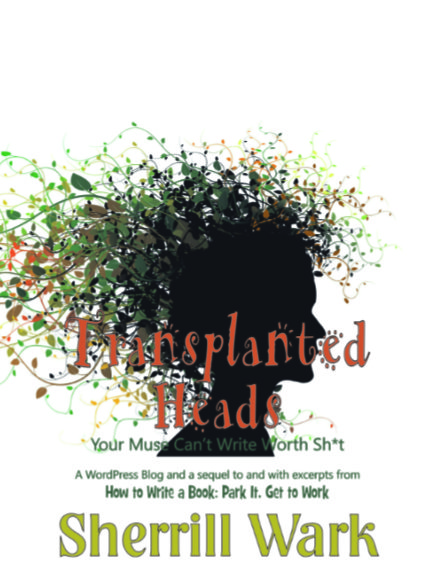
A sequel to *How to Write a Book: Park It, Get to Work*. Written with humour and encouragement, this book is a must for those who are as yet insecure with their authorship.
Available at the Amazon dots in print.

Historical Fiction
The Kesk8a Series
Book 1
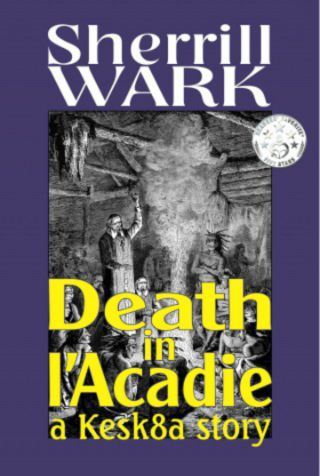
In this sometimes humorous, sometimes deadly serious account of life in 1670–80s Acadia when the Newcomers attempted to foist their ways onto The People, Keskoua, a Mi’gmaw girl, takes us into her world where murder and deceit mean nothing to those who come from away.
“Some of [the newcomers] had taken up the lonely life of trapping because they couldn’t stand the lonely life of civilization. Some of them were running from women, from the fathers of women, from lawmen, or from each other. On the rough side, all of them were at least a little bit crazy whether they had started out that way or not.”
Sherrill Wark, the author, a descendant of “the Frenchman Claude Guidry,” brings us on a journey of enlightenment through the eyes of a resilient people determined to survive against almost unbearable challenges.
“… life among the Mi’gmaw near Port Royal as told by a ‘pain in the arse’ teenage girl named Keskoua. From the first paragraph to the last, Keskoua’s storytelling keeps the reader involved. If it were in present time, it would be dubbed a ‘coming of age’ story. In the late seventeenth century, ‘coming of age’ isn’t that simple for young women—or young men for that matter. Early marriage, death from childbirth, murder and disappearances are common occurrences.
“Sherrill Wark has managed to give a raw yet entertaining glimpse into life in early Acadia without sacrificing authenticity of fact. History as it should be taught.”—Phyllis Bohonis
Book 2
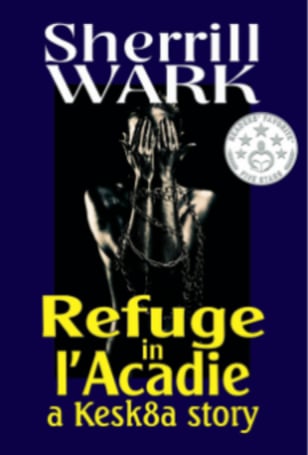
1694 Port Royal. Ordinary life is disrupted when a beautiful dark-skinned stranger floats in from the Big Bay in a dug-out. She is followed by three self-called slave hunters from Acadia’s enemy, New England.
The village drunk knows one of these “slave hunters” all too well: the man kidnapped his little sister years earlier, abandoning her at the docks of Boston Harbor.
Keskoua, her love-smitten brother, the mysterious stranger, a friend with suspicious motives, and the drunk band together to plan a sea voyage on a cursed ship to find the drunk’s sister and rescue the stranger’s daughter from slavery.
“I enjoyed every single page.”—Phyllis Bohonis, The Wilderness
I didn’t ask it but she answered my question anyway: “These scars on the outside of me are not from being a slave. They are from being thought beautiful and living beside a jealous neighbor. The scars on the inside of me are from slavery. No one can see those.”
“I saw them,” I told her. “I saw them when you were sitting there on the log with Hélène’s shawl over your shoulders when you first got here. When Monsieur St-Amand was trying to look into your ears and your eyes with his glass instrument. The fear and anger became even stronger in you. It came out like a storm cloud.”
Book 3
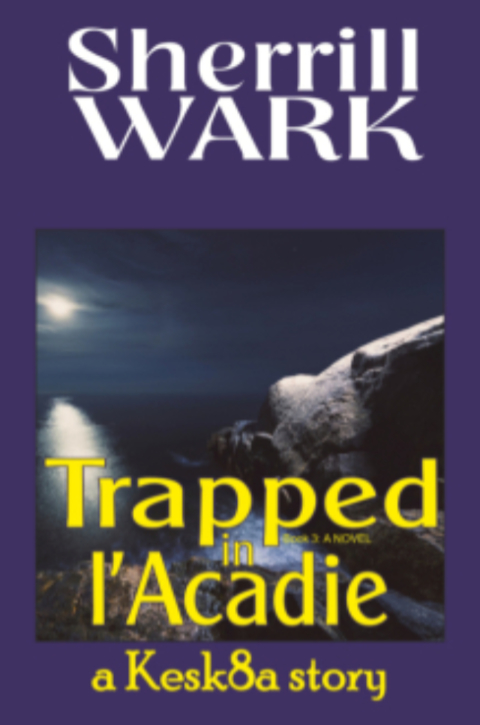
Nowhere to go. Nothing to eat.
The only thing that survived, the only thing that could survive, was love—but only in the strongest.
“Village? There is no village. They are saying there’s no longer a village anywhere. They burned everything down. Down flat. Trees, houses, churches, barns, the wheat fields.” She swept her arm fully from left to right. “Everything is gone. They even…” She shook her head. “I don’t know if I can say it. They burned everything. Everything. Even the cows and the chickens and the sheep.” Those strange eyes once again bore into mine. “You could hear them crying out. I never knew a cow could scream.” She turned away from me. “I never want to hear that again.”
Book 4

“And our children.” I said quietly. “They take any young
Mi´gmaw children they catch fishing. They take them away.”
“As I well know!” Marguerite said. “They put them in prison, oui? That’s where they are?”
“No. It’s not where they are and you know that, Marguerite. You know exactly where they are.”
“Mon Dieu. Don’t tell me that. I don’t want to know that. I don’t want to think that. Not about my grandson! Let’s go back to talking about rum. The damned rum that’s ruining not only your people but our young ones as well. Oh mon Dieu, help me stop thinking about my grandson.”
Copyright 2017 Crowe Creations